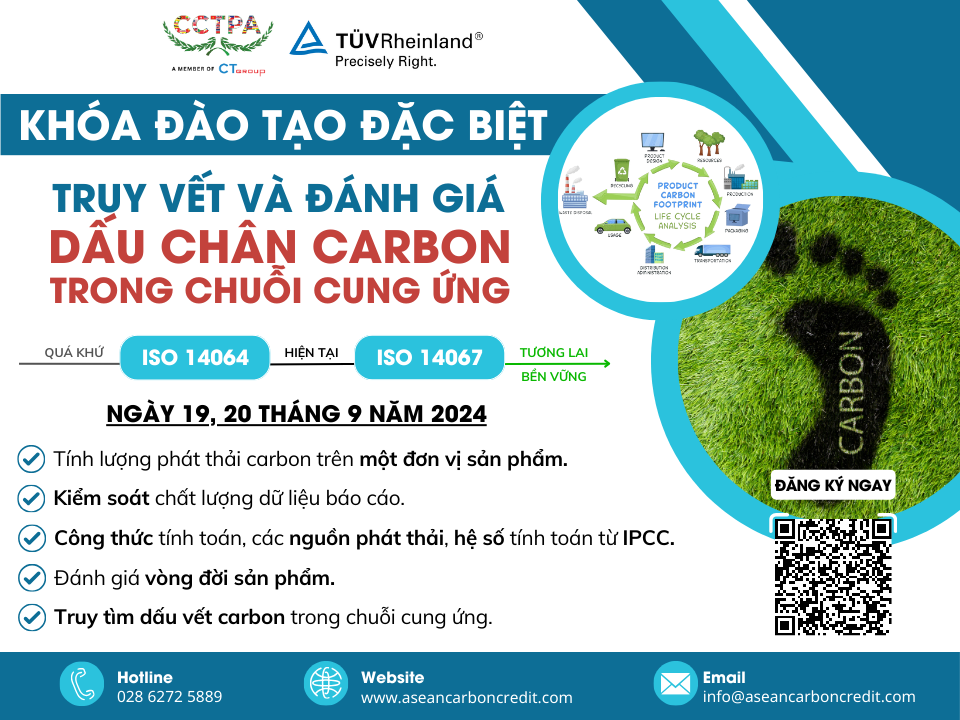Vietnam’s carbon market is creating new opportunities for businesses by promoting emission reductions, attracting green finance, and supporting the country’s Net Zero 2050 goal. As climate change poses increasing challenges, Vietnamese enterprises play a key role in driving the transition to a low-carbon economy while enhancing competitiveness and sustainability.
Climate change and current challenges in Vietnam
In recent years, climate change has become an increasingly urgent and escalating global challenge. Entering 2025, international climate organizations have issued continuous warnings about extreme weather patterns: The World Meteorological Organization (WMO) predicts that 2025 will remain among the hottest years on record; South Asia and Southeast Asia may face stronger storms, irregular rainfall, and localized droughts that could seriously impact food security. At the same time, severe heatwaves are spreading across Europe, with temperatures exceeding 40°C in many regions of Spain and Italy, placing pressure on healthcare systems, agriculture, and daily life.
Vietnam is also experiencing clear impacts: record-breaking heat in the North, such as Hanoi reaching 40.3°C in August 2025; increasing saltwater intrusion in the Mekong Delta during the 2024–2025 dry season; and localized droughts in the Tay Nguyen. These challenges require Vietnam to accelerate its transition to a green-growth model, enhance climate resilience, and strengthen national competitiveness amid the global shift toward a low-carbon economy.



Green economic transition: Vietnam’s carbon market and the role of enterprises
During the current transition period, the Draft Political Report for the 14th National Congress, released for public consultation on 15/10/2025, positions the development of a low-carbon economy, green growth, and circular economy models as strategic priorities. The draft also emphasizes the carbon market’s role as a key economic instrument for controlling emissions and achieving net-zero emissions by 2050.
Major emitting sectors, including fossil-fuel-based power generation, transportation, manufacturing, and agriculture, need to accelerate their shift to clean technologies and improve energy efficiency. For businesses, emissions management is not only a legal requirement but also a growing competitive advantage as green standards tighten. Proactively participating in emission reduction mechanisms and accessing green finance becomes essential, helping businesses optimize costs, mitigate risks, and turn climate commitments into drivers of sustainable growth.
Carbon credits – green finance resources for businesses and the economy
The carbon market delivers dual benefits: promoting technological innovation for emission reductions while creating new economic growth opportunities based on carbon resources. Carbon credits and emission-trading mechanisms are important economic tools to unlock the potential of the carbon market and support businesses in transitioning to greener, low-carbon development.
When businesses proactively conduct greenhouse gas inventories and invest in emission-reduction projects, they not only comply with regulations but also move toward cleaner production models. For Vietnam, developing the carbon market helps attract international capital, encourages greener production practices, and provides cost-effective compliance options for hard-to-abate sectors. This aligns with the green-growth direction outlined in the Draft Political Report for the 14th National Congress.

Strengthening policy and infrastructure – foundations for an effective Vietnam’s carbon market
Vietnam continues to improve its legal framework and infrastructure to operate the carbon market, aiming to reduce emissions and foster green economic growth. A synchronized policy system and trading infrastructure will create a foundation for a transparent and efficient market.
In the near future, Vietnam plans to pilot a carbon credit trading exchange and gradually move toward international credit recognition and linkage, in line with the carbon-market development strategy outlined in the draft. In this way, Vietnam is progressively implementing the orientations set forth in the Draft Political Report for the 14th National Congress, promoting the use of economic instruments for environmental management and improving nationwide greenhouse gas governance.
Pioneering enterprises – key to building a carbon market ecosystem
In the transition process, the role of pioneering businesses and organizations determines the efficiency and sustainability of the carbon market. Active participation by enterprises will create a ripple effect, fostering a dynamic and competitive carbon ecosystem. Beyond legal compliance, companies need to view emission-reduction strategies as part of their long-term business direction.

Simultaneously, the development of institutions such as carbon credit exchanges and automated GHG inventory and ESG reporting platforms will help businesses optimize costs, ensure data transparency, and enhance credibility with global investors.
As a pioneering organization, CCTPA is progressively building and operating Vietnam’s carbon credit market infrastructure while connecting to regional and international markets to provide businesses with access to green finance. Through Catalyst – an automated GHG inventory and ESG reporting platform, and CarbonFly – a UAV & LiDAR-based technology for measuring agricultural and forestry carbon stocks, CCTPA supports Vietnamese enterprises in standardizing data, increasing transparency, and preparing for international carbon-market integration.
This aligns with the low-carbon economic development direction emphasized in the Draft Political Report for the 14th National Congress, which identifies businesses as the central force in fulfilling national climate commitments. CCTPA will continue to accompany enterprises, turning emission-reduction obligations into a driver of green growth for Vietnam’s economy.
CARBON CREDIT TRADING PLATFORM ASEAN (CCTPA)
Address: Léman – 20 Truong Dinh, Xuan Hoa Ward, Ho Chi Minh City
Hotline: (+84) 28 6272 5889
Email: info@aseancarboncredit.com










